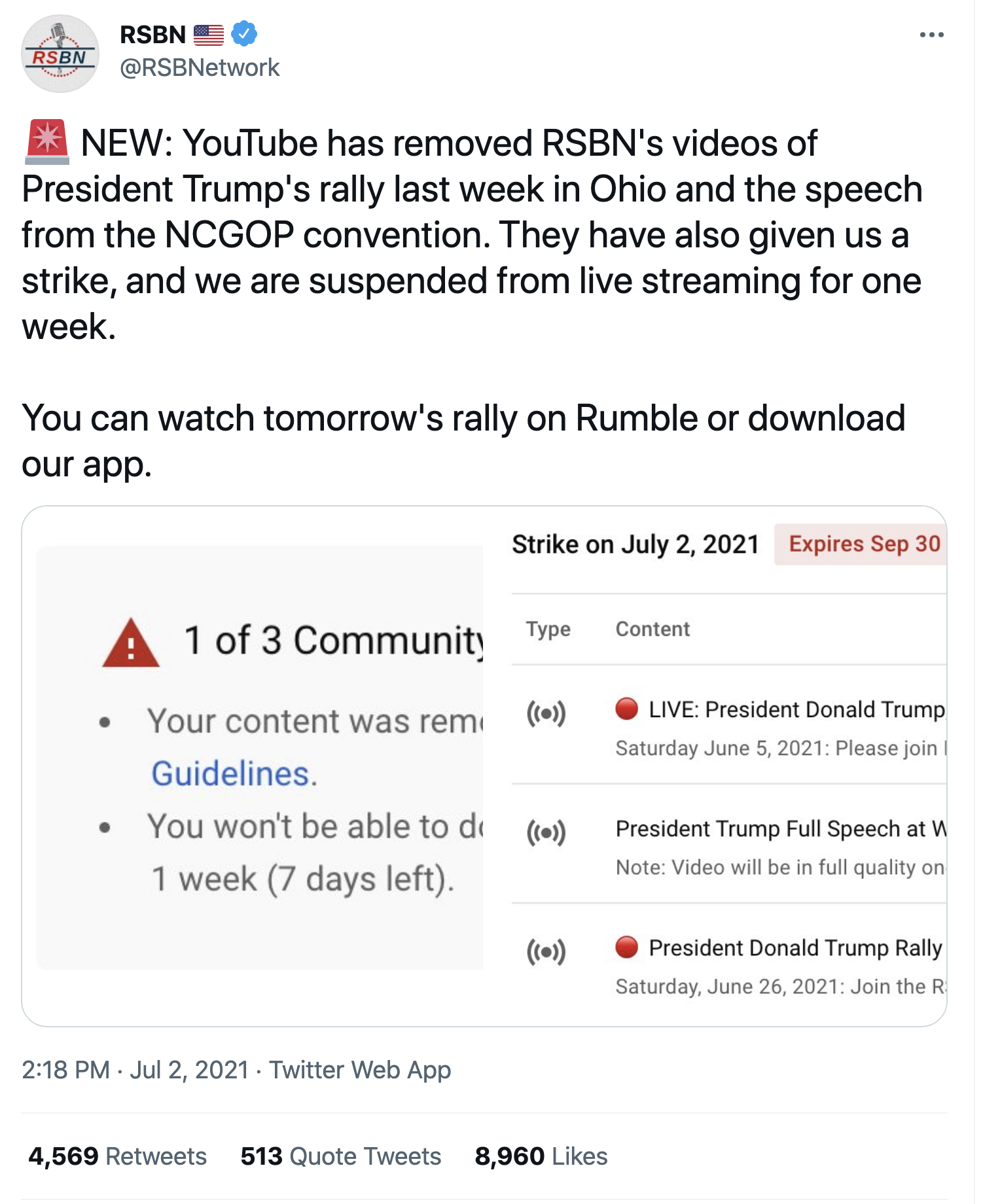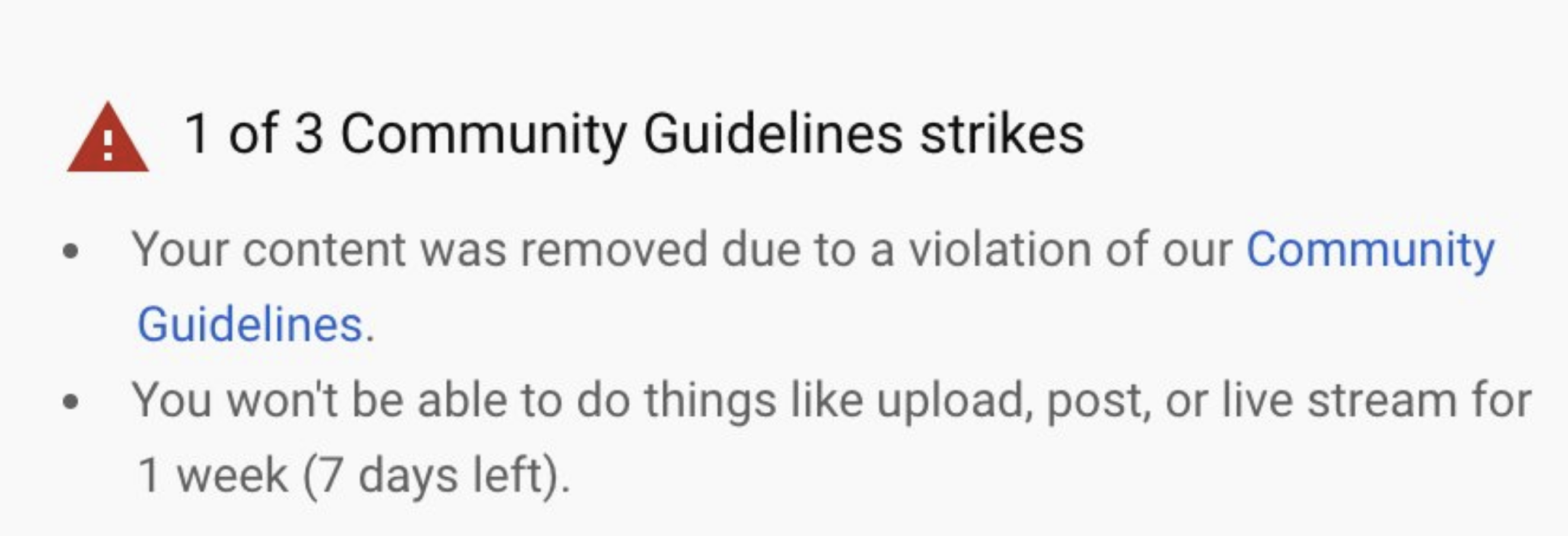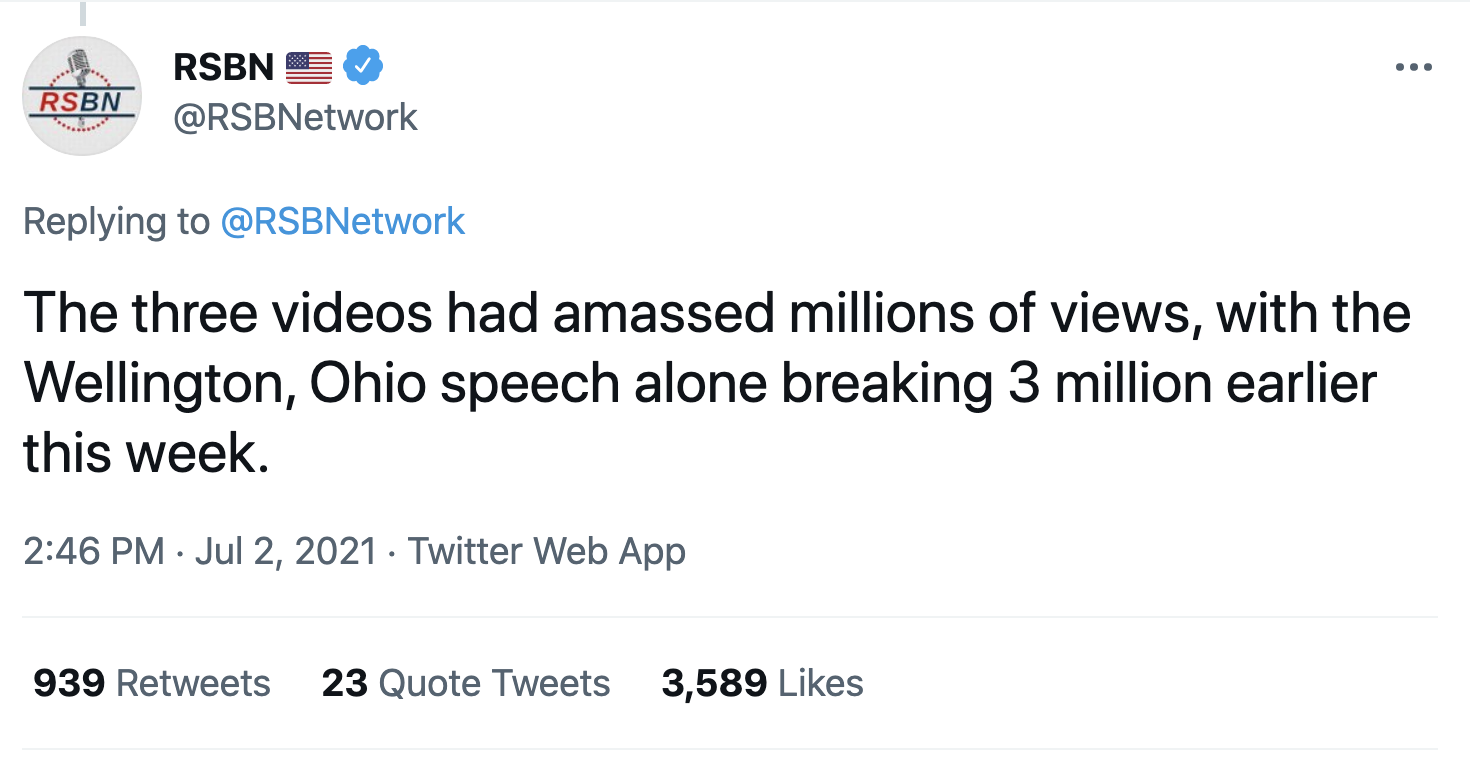The tech giants do not want to carry Donald Trump. So, he filed a lawsuit trying to force the tech giants to allow him free range. The Donald’s attempts come across as more like a small cartoon character of him chopping feverously at a giant beanstalk. He works up a big sweat and makes no progress. So, what is the deal?
Donald Trump’s negative magic has been fading ever since he dropped out of public view from many Americans. Twitter permanently banned him citing possible continued violence after January 6 insurrection attacks on the Capitol. Facebook, ever eager to rake in more money, still banned him after the failed coup for two years. YouTube, owned by Google, has joined them.
Donald Trump on Wednesday filed class-action lawsuits targeting Facebook, Google, and Twitter.
YouTube deleted three videos of Trump from the American Conservative Union (ACU) account. It also prevented the ACU from live-streaming the ex-president’s recent CPAC speech, according to The Washington Times.
The RSB Network reported:
‘NEW: YouTube has removed RSBN’s videos of President Trump’s rally last week in Ohio and the speech from the NCGOP convention. They have also given us a strike, and we are suspended from live streaming for one week.’
”The three videos had amassed millions of views, with the Wellington, Ohio speech alone breaking 3 million earlier this week.”
ACU Chairman Matt Schlapp released a statement indicating the group found out its account had been frozen for seven days. The reason was a video showing Trump announcing a class-action suit against Google and YouTube among others. ACU runs the Conservative Political Action Conference, which was unable to upload Trump’s speech.
Similarly, a federal judge blocked a Florida law to penalize tech companies that suspended politicians in the run-up to an election. District Judge Robert Hinkle wrote such a Florida law would be unconstitutional, according to The Washington Post:
‘[It] compels providers to host speech that violates their standards.’
Trump argued these big tech companies violated his First Amendment rights. Google owns YouTube. He claimed that Facebook, Twitter, and Google were not private companies but “state actors.” The strategy was that companies cannot violate the First Amendment, but as quasi-government actors, they could. Trump also wanted the court to strike down “Section 230, a decades-old Internet law that protects tech companies from lawsuits over content moderation decisions.”
Trump said:
‘We’re demanding an end to the shadowbanning, a stop to the silencing, and a stop to the blacklisting, banishing and canceling that you know so well.’
Professor at Santa Clara University Law School in California Eric Goldman said Trump was “playing a standard media game. It fits into a broader pattern of the former president bringing lawsuits and then not vigorously pursuing them:”
‘There’s no way a plaintiff has been able to get traction in the past, and there’s no way that Trump is going to be able to get traction either.’
Deputy Director of the New York University Stern Center for Business and Human Rights Paul Barret said the lawsuits were “dead on arrival:”
‘Trump has the First Amendment argument exactly wrong. In fact, Facebook and Twitter themselves have a First Amendment free speech right to determine what speech their platforms project and amplify — and that right includes excluding speakers who incite violence, as Trump did in connection with the January 6 Capitol insurrection.’
Professor of Law at Vanderbilt University Brian Fitzpatrick added:
‘The fact that they benefit from a federal law does not transform someone into the federal government,” said. All of us benefit from laws at some point or another and that doesn’t transform us into the federal government.’
Legal director at Public Knowledge, a nonprofit that promotes Internet access, John Bergmayer said it was a “crackpot theory:”
‘If that were true, every corporation would be a government actor. Every company is chartered by the government. Does that mean that every corporation is therefore a state actor?’
The Computer and Communications Industry Association (CCIA) president Matt Schruers call the suit “frivolous.” He said that everyone has to follow the rules, even presidents. He released this statement:
‘Digital services have a right to enforce their terms of service.’
Three White Lions podcast, Gloria Christie reads her week’s most important news/ commentary stories in the liberal online newspaper The Bipartisan Report. Gloria Christie Report her newsletter for people on the go. Written in her own unique style with a twist of humor in a briefer version of Bipartisan Report. Christie’s Mueller Report Adventures In Bite-Sizes a real-life compelling spy mystery. Find her here on Facebook.
















